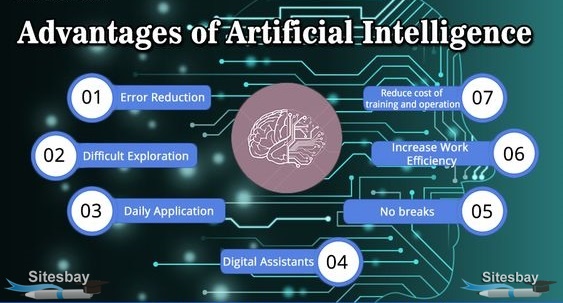Understanding Artificial Intelligence: The Future is Now
In the ever-evolving world of technology, few innovations have captured global attention quite like Artificial Intelligence (AI). From powering voice assistants in smartphones to driving advancements in healthcare and finance, AI is no longer a concept of the future—it’s a crucial part of our present.
What is Artificial Intelligence?
Artificial Intelligence refers to the simulation of human intelligence in machines that are programmed to think, learn, and make decisions. These intelligent systems can perform tasks that typically require human intelligence, such as recognizing speech, analyzing data, learning from experience, and even problem-solving.
There are three main types of AI:
-
Narrow AI (Weak AI): Focused on specific tasks (e.g., Siri, recommendation systems).
-
General AI (Strong AI): Has human-like cognitive abilities; still theoretical.
-
Superintelligent AI: Surpasses human intelligence; currently speculative.
Applications of AI in Everyday Life
AI is deeply integrated into our daily routines, often in ways we might not even notice:
-
Smart Assistants: Tools like Alexa, Siri, and Google Assistant use natural language processing (NLP) to interact with users.
-
Healthcare: AI helps detect diseases early, personalize treatment, and improve diagnostic accuracy.
-
Finance: Algorithms analyze market trends, detect fraud, and automate trading.
-
Transportation: Self-driving cars and intelligent traffic systems are powered by AI.
-
Customer Service: Chatbots handle inquiries, provide support, and enhance user experiences.
Benefits of Artificial Intelligence
-
Efficiency: AI can process large amounts of data quickly and accurately.
-
Automation: Repetitive tasks can be performed without fatigue or error.
-
Personalization: AI tailors content and services based on user behavior.
-
Innovation: AI drives research in fields like climate science, space exploration, and genetics.
Challenges and Ethical Considerations
While AI offers many benefits, it also brings significant challenges:
-
Job Displacement: Automation may replace certain human jobs, raising concerns about unemployment.
-
Bias in AI: Algorithms can reflect and reinforce societal biases if not properly trained.
-
Privacy Issues: Data used to train AI systems can lead to privacy invasions if not securely handled.
-
Control and Accountability: Determining responsibility for AI-driven decisions can be complex.
The Future of AI
The future of AI is full of possibilities. As technology advances, we may see AI systems becoming more autonomous, creative, and human-like. However, it’s essential to develop frameworks that ensure ethical use, transparency, and accountability.
Governments, tech companies, and researchers must work together to shape AI’s future—one where innovation aligns with humanity’s best interests.
Conclusion
Artificial Intelligence is not just a technological trend—it’s a transformation of the way we live, work, and interact with the world. As we move forward, understanding AI’s capabilities, implications, and responsibilities will be key to leveraging its full potential.


